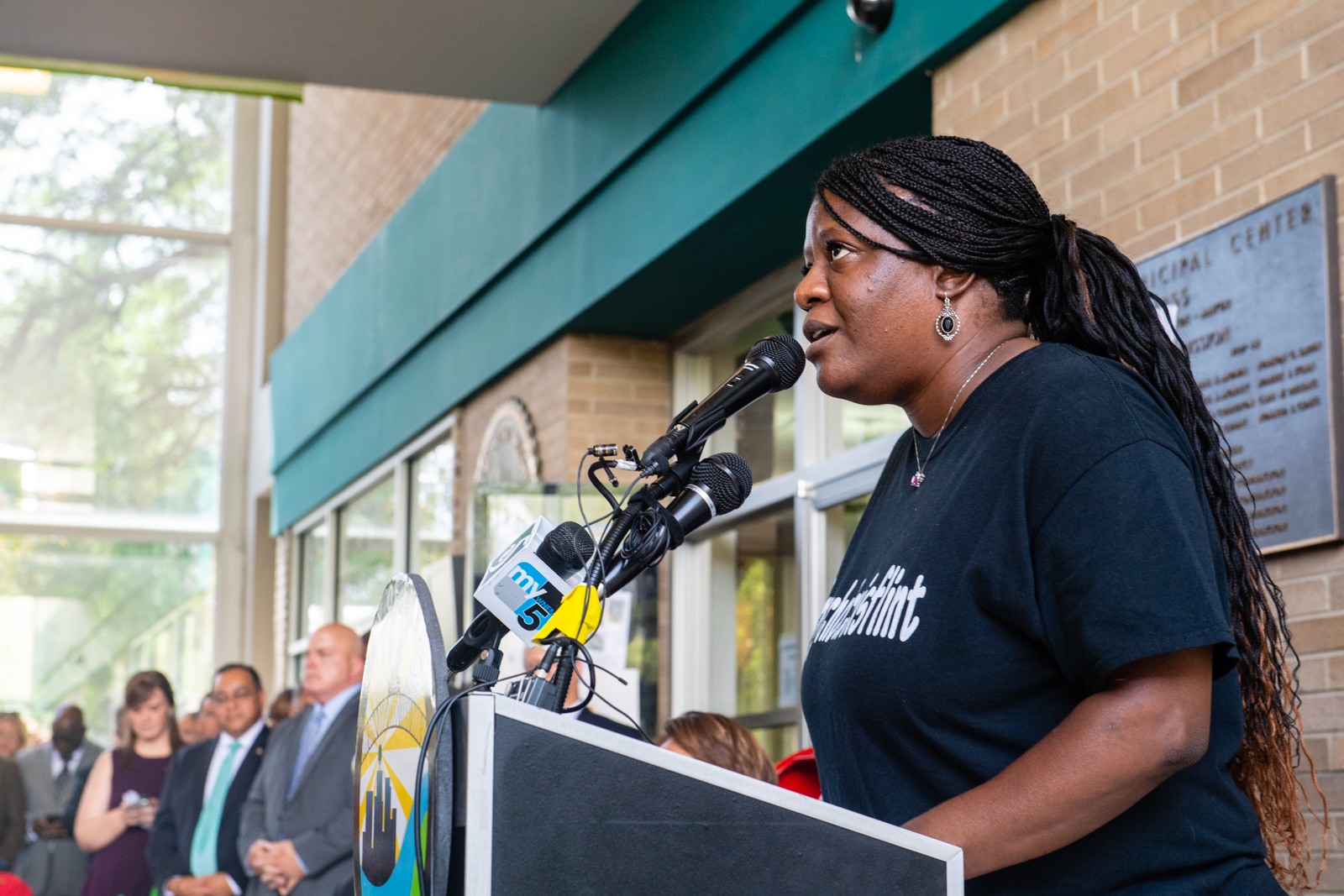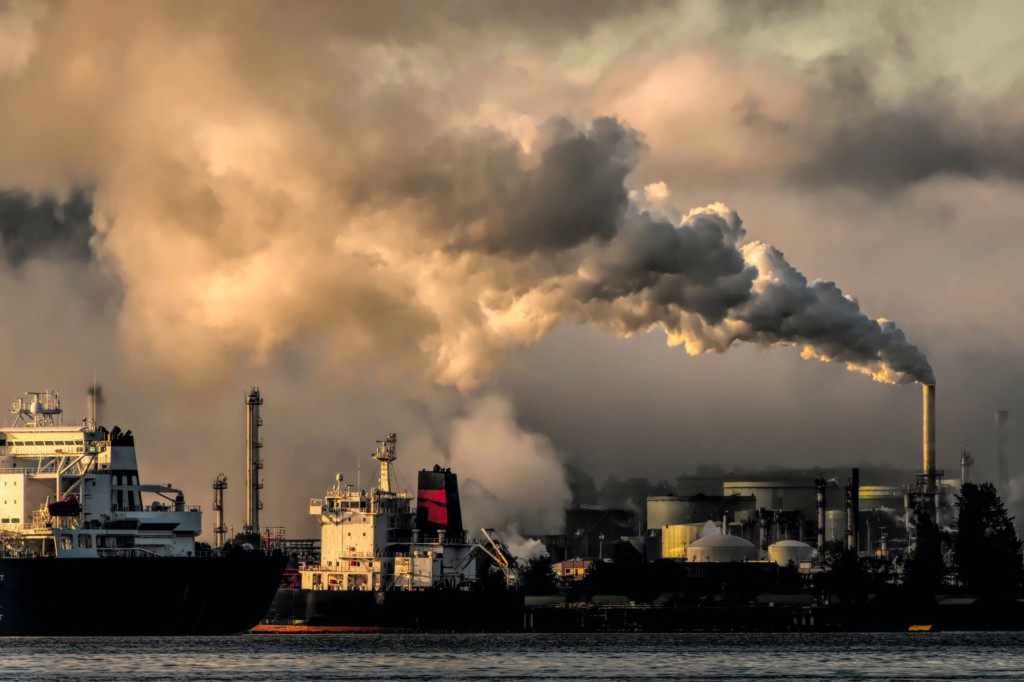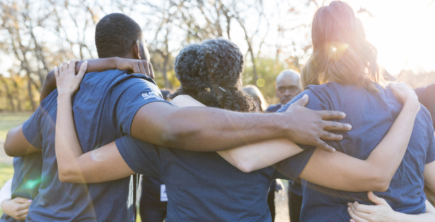Philanthropy
Supporting Local Communities Resist the Fossil Fuel Industry

Tides continues to urge our donors to provide nonprofits and movements critical funding to address climate change, racial injustice, voter suppression, COVID-19, and other challenging social issues. We’re proud to share another update of how a donor has answered our call to “get off your assets.”
Recognizing that local communities most threatened by pollution are also the same communities standing up against the fossil fuel industry, an anonymous donor partner tasked Tides with putting together a multimillion-dollar, multiyear grant portfolio to confront the fossil fuel industry. We spoke to Peter Martin, director of Philanthropy at Tides, and Whit Jones, director of the Energy Action Coalition’s Camp about how they curated the portfolio, which focuses on grassroots organizations working to improve the health and safety of their communities, and what they would recommend to individuals who want to have an impact on the climate challenge through their philanthropy.
Tides has over 70 climate-related projects and partners. Meet climate & environmental justice leaders on the front lines.
What inspired the focus of the portfolio?
Tides’ Confronting Fossil Fuels Locally grantmaking started with the recognition that under the Trump administration there was a major push to build more fossil fuel infrastructure, and that local communities most threatened by the impacts of pollution were leading the resistance. With the urgency of addressing the climate crisis, and still hundreds of proposed power plants, pipelines, and export facilities proposed, it is local leaders, organizations, and campaigns that are building the power to stand up to the fossil fuel industry. This strategy really resonated with the funder since it felt so tangible and local given the larger climate policy fights at the national level often seem distant and harder to influence.
How did you go about finding and prioritizing grantees? What were the criteria?
The goal has been to resource organizations who represent communities who are most immediately impacted and who are focused on building local power through community organizing, civic engagement work, and grassroots advocacy to intervene in permitting, zoning, and regulatory processes. The fund has benefited from a lot of guidance from other philanthropic efforts like the Funders Collaborative on Oil & Gas, in partnership with regional funders in some of the most impacted areas, especially the Gulf Coast and Ohio River Valley, where there is significant proposed expansion of fossil fuels and petrochemicals. In addition to these regions, the fund has mobilized rapid response resources for frontline organizations and indigenous communities leading the campaigns against proposed fossil fuel pipelines like Dakota Access, Keystone XL, Line 3, and Mountain Valley Pipeline.
What type of grants were made?
Mostly unrestricted one-year grants with the option of renewal in the second year. We are moving into year three of this program, and we continue to support many of the same organizations and uncover new groups to support as well. For some grantees, where they had a broader programmatic focus, we made grants specifically for their organizing work related to the climate or environmental justice issue that they are working on. But by and large, we are giving flexible grants to these groups to use the funds where most urgently needed.
What were some lessons learned or surprises that came up during the process?

“The level of impact you can have supporting a frontline group with a relatively small grant … to protect their community’s health and well-being is astounding.”
Providing $50K–$100K grants to small, frontline groups can be a game-changing experience for the group and for the issue they are organizing around. Most of the grantees are very understaffed and rely heavily on volunteer support and activism. In some cases our grants allowed groups to hire professional organizers for the first time and figure out creative ways to engage community members. While we are very supportive of the larger, national green groups, the level of impact you can have supporting a frontline group with a relatively small grant fighting a David versus Goliath battle to protect their community’s health and well-being is astounding.
Also, we were surprised and heartened to see how coordinated and interconnected many of our grantees are. They are working closely with environmental legal shops, national green groups, and orgs fighting for racial and economic justice. They are sophisticated and savvy campaigners facing some of the most powerful and well-resourced companies in the world. It’s an honor to support them.
What advice would you give a donor interested in funding similar work?
The climate crisis is such a big, thorny, and complex problem with no easy solutions. There is no silver bullet. Our advice would be to go deep in one particular area of the climate crisis and work with Tides to uncover grassroots community organizations and leaders who are fighting for the health and safety of their communities on a particular aspect of the climate challenge that resonates with you. You can have a profound impact, if you pick and choose where to engage with a modest amount of philanthropic capital. And, stick with your strategy for the long haul. These fights take time and require multi-year commitments. And lastly, there are a number of great pooled funds out there, where donors are joining forces for larger impact.
If you are interested in starting a fund that addresses climate change, or donating to Tides’ climate justice funds, WE LEAD and the Frontline Justice Fund, please contact us.


